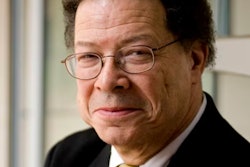A blog post I wrote two years ago titled “Dear dean@college.edu: Prepare your graduates with wellness curriculum” challenged higher-education administrators to look into the much-overlooked area of health and wellness education.
I posed a simple question: If the mission of higher education is to develop individuals who will make outstanding contributions to society, is it possible to succeed in that mission without developing practical skills around individual mental and physical health?
Now, I add another relevant question: Is there an even more critical role for mental and physical health in preparing diverse populations to be outstanding in a society of racial and cultural bias, health disparities and institutional and systemic racism?
I am excited to collaborate with Diverse on this new health and wellness blog positioned at the intersection of education and diversity. Its primary goal is to educate about topics related to diversity, education and health. As a health and wellness coach and educator for 17 years, I engage the issues and trends that merit exploration and that could be part of a health and wellness curriculum. In 2017, I published my first book about the impact of culture on the effectiveness of health and wellness programming.
This blog will ask questions, spark discussion and encourage innovation on diversity, education and health topics, hopefully creating opportunities to influence change. Higher education students interested in issues of diversity can contribute to and support the “health of the public” from a range of academic areas and industries at levels ranging from individual and community to national and global. In addition to inspiring discourse, I will participate in it from a student perspective when I begin a Ph.D. program in public health and nutrition next year.
Conversation and change are needed. At all levels of education, from early childhood development to higher education, an unfortunate trend is a reduced focus on required courses and electives that develop knowledge and understanding of issues and activities related to individual health, nutrition and wellness. Gone are the days of physical education and home economics for all students. Budgets have been slashed in favor of core academics. There is nothing that resembles what I would call a wellness curriculum.
This change is portrayed as positive, as a shifting of priorities to “what matters.” But in the process, has more been lost than gained? A focus purely on core academics increases pressure on many students. Particularly for students in higher education, greater pressure and accompanying stress create even more of a need for balance in the form of mental and physical health and wellness practices and support. The effect of stress on students’ general well-being is unquestioned, yet few institutions offer support in the form of a curriculum that teaches them how to manage stress. If a healthy worker is a productive worker, a healthy student is a productive student. And if the ultimate goal is productive students, then what should colleges and universities be doing to show them how to be just that?
The need is likely greater for the diverse student. In addition to the pressure of academics, they also must contend with pressures associated with unique cultural demands and expectations, racial and cultural biases and health disparities. How do institutions of higher learning contribute to support structures? This blog will be a forum to discuss these issues and what schools can do to prepare students for achievement and societal contribution in the face of challenging realities.
The good news? There are movements to create change at the higher education level, and we will discuss them. For example, there are efforts to modify the curriculum of medical schools to provide more education in preventative medicine and multidisciplinary skills in self-care. Also, health and wellness initiatives inform food-service models that some colleges and universities have introduced to stay competitive – including support for special diets, ethnic options and sustainability initiatives.
This blog will share more than important movements to create change in higher ed. It will introduce you to health and wellness options that can enhance your life personally. In that sense, we can be the change we seek.
Part of the mission of Diverse is “to contribute to the building of educational, cultural, social and economic structures necessary to allow every individual to achieve his or her full potential and thus contribute to the greater good of their community and the nation.” Can students achieve their full potential if they do not feel well? Though often overlooked, health and wellness practices play a key role.
I look forward to our dialogue and your perspectives, insights and questions. Tell us what you’re hearing, and what you want to hear about. Together, we can advance the conversation and perhaps effect positive change along the way.
Tanya Leake is a certified health coach, wellness presenter and group fitness and dance instructor based in Atlanta. She also is founder of EmBODY WELL, a holistic wellness consultancy, and author of the 2017 book, “GET A GGRiPP: The Health and Wellness Movement Rooted in Black Cultural Traditions.” Leake holds a bachelor’s degree in industrial engineering and is earning a master’s degree in clinical nutrition.















